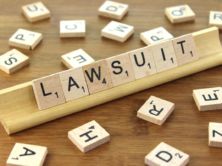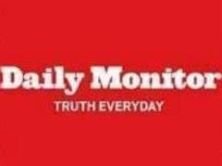
(Credit: Wikipedia/Espen Moe)
We asked all four papers whether they knew of the corrections, whether they knew McClatchy was making them without consulting them, and whether they were authorized to do so. We also asked whether, now fully aware, they would run their own corrections.

McClatchy corrects the above Miami Herald story on its website without letting the Herald know.
The Miami Herald quickly wrote back. Not to put too fine a point on it: The paper threw McClatchy under the bus:
“Your email is the first we’ve heard about this. Mr. Assange did not contact The Miami Herald for a correction. He did contact McClatchy, which made the corrections to several non-Herald stories and to one by Mr. Tamayo, but in an oversight McClatchy did not inform The Herald. (Our web story, by the way, dated Dec. 8, was not removed from our website. It simply expired.)
“Normally, McClatchy informs us of any errors in Miami Herald stories they run so we can both correct them. As I said, this was an oversight on their part.” The Herald editor continued, “We’ll run a correction in our print edition, and we’ll notify the news databases to correct the story.” Further, The Herald told us it would run its own print correction today (June 27) and let news archives databases know about its correction.
Meanwhile, the Los Angeles Times’ London bureau chief, Henry Chu, who had or shared bylines on three Times stories corrected by McClatchy, quickly told iMediaEthics he’d ask the newspaper for one correction for one error: “And as far as the L.A. Times is concerned, it’s just the one, from the December story. The other two are McClatchy’s [editing errors] to deal with.”
When the Record is Corrected, But Quietly
Only six of the articles on the McClatchy website carry correction notices to readers, while the other two have undisclosed text/headline changes. (In a phone discussion with iMediaEthics, Seibel promised to remedy this by adding formal corrections after iMediaEthics contacted him, saying that proper disclosures of changes are “important to me.”)
The eight articles in question were published between November 28, 2010 and February 24, 2011. McClatchy’s corrections – for two stories by McClatchy, including one authored by Seibel, and for articles by the Los Angeles Times, The Miami Herald, The Charlotte Observer and The Sacramento Bee — were all added to articles on McClatchy’s website.
| But, while the corrections were made on McClatchy’s website, McClatchy failed to inform its 1,200 wire clients and the news outlets that first published these stories of the corrections and changed text. |
Seibel confirmed McClatchy’s communications with Assange and corrections. He wrote to iMediaEthics:
“We did correct wording in several stories that were on our website (most were by the LA Times). I wouldn’t say we negotiated; Michael Ratner of CCR brought them to our attention, I read them, agreed they were incorrectly phrased (I think in one instance I didn’t agree) and I fixed them, noting the change on the story. It was a simple decision, since we had been careful in general not to make the mistake in our staff written stories.
“Julian later asked if we didn’t have a more prominent way to note the corrections, such as a newspaper might have a corrections column. I said no, and that most of our traffic went to story pages on our website so that would be the most likely place for a reader to see a correction. But it’s an interesting topic.”
Seibel told iMediaEthics by phone that he received the initial requests for corrections from what he assumed was “a bot scrolling the web.” So we asked Assange and his team who are working on correcting the record if they, in fact, used bots instead of human helpers.
The Assange team responded by email today:
“Your other email reported that McClatchy feels our complaints were submitted by automated bots. This is not true. As I said, we have a small team helping us submit complaints in the United States and some media outlets have online portals for this purpose. I should imagine that when a number of articles in a particular newspaper have been found it is easiest to submit complaints for those articles in one batch. I believe the ‘bots’ story came from one particular writer from the Christian Science Monitor – I believe his name is Chris (?) Bungay – who started this rumour on his twitter feed.”
McClatchy Didn’t Tell Newspapers It Corrected Their Work: the Backstory
But, while the corrections were made on McClatchy’s website, McClatchy failed to inform its 1,200 wire clients and the news outlets that first published these stories of the corrections and changed text.
Seibel later explained by phone that he would send out (after speaking with us) corrections over the wire for the two McClatchy stories. He said only the newspapers could send corrections over the wire for their stories. He also said he thought that stories sent over the wire, also go to the databases (such as LexisNexis, Proquest, NewsBank) that archive articles for the four newspapers and McClatchy.
To fact check Assange’s claims of the McClatchy corrections, iMediaEthics systematically looked through the newspaper’s websites and news archives databases to see if corrections were present.
The Miami Herald and The Charlotte Observer don’t have their articles on their websites anymore, but they also apparently didn’t publish corrections for readers who read those original articles. The three Los Angeles Times articles in question are still posted on the Times’ website (here here and here) without corrected text or a correction notice. The Sacramento Bee’s article was still on its website as of June 25, sans correction or changed text.

So, we contacted the four newspapers whose articles were corrected by McClatchy asking why there aren’t any corrections on their websites, whether they knew about McClatchy’s corrections, and whether they had heard from Assange.
We could see that Assange and his team were too trusting that McClatchy would honestly advise him about how to get the most prominent corrections possible. When asking for corrections, you often have to fight to get news outlets to appropriately disseminate the corrected information. Asking for corrections creates an adversarial relationship, not a friendly one. Even news outlets with the best of intentions can not be your friend during this process.
The Miami Herald: “This was an oversight” by McClatchy
The Miami Herald’s metro editor, Jay Ducassi, was forthcoming and told iMediaEthics on June 25 that McClatchy failed to let The Herald know it was correcting the paper’s content.

The Miami Herald Online has a prominent Corrections page that Assange could have been directed by McClatchy to contact. See above screenshot. (Credit: The Miami Herald)
McClatchy’s Seibel told us that “I probably should have told The Miami Herald that we were correcting something on their stories except the story is so old and frankly if I did the research I guarantee it’s not viewed by more than 3 people a month.” Ducassi added that The Herald would run its own correction in print today, June 27, and notify news databases.
Los Angeles Times Readers Rep Refers to PR Department?
The Los Angeles Times, a McClatchy partner in the McClatchy/Tribune newswire, had three articles affected by McClatchy changes. Only one of those articles, a February 24, 2011 story, earned a correction notice on McClatchy’s website, reading “CORRECTION: An earlier version of this story referred incorrectly in the first paragraph to ‘charges of sexual assault,’ Assange has not been charged in connection with the allegations.”
Times London bureau chief Henry Chu had or shared bylines on the three stories in question. None of them was corrected or given correction notices on the Times’ website or in news databases.
We contacted the Times’ readers representative, Deirdre Edgar, asking for more information. Readers’ representatives typically handle corrections and work with the public on complaints and concerns about their news outlet. Edgar blogs occasionally about corrections and errors at the paper.

The Los Angeles Times has a prominent online correction page and the readers’ representative has a blog. (Credit: Los Angeles Times)
Curiously, Edgar referred us to the Times’ public relations department, writing that the Times’ communication director Hillary Manning “can coordinate.” Manning hasn’t responded to our inquiry.
However, at 3:05pm EST yesterday, she wrote: “I understand that you’ve been placing calls to our newsroom re: this matter. Please know that your request has reached the correct department here and we are handling it. No need to contact additional people at the Los Angeles Times. Thank you…Hillary.” At 12:08am EST, Manning added, “Unfortunately it’s been a very busy couple of days and the conversations that you initiated with various people at LA Times have made it a bit more difficult to understand what you’re asking for and how to respond. We’re doing our best to provide a response given your deadline.” We’ve followed up with Manning three times since that e-mail, but she has failed to respond, despite acknowledging our June 27, 5 AM EST deadline.
We also contacted the Times’ Henry Chu about this. Chu told us by e-mail that in two cases, the error was McClatchy’s. Of the Feb. 7, and Feb. 24, 2011 stories, he explained: “The McClatchy service must have taken my story and edited it for themselves, and therefore made the error, which was not in the original” and “the error is McClatchy’s,” respectively.
Chu admitted error in the Dec. 7, 2010 story, writing: “In this instance, my story in the LA Times does have the sentence in question. I can raise this with our ombudsman.” Chu noted that “in none of these instances (or any other) have I ever been contacted by Julian Assange.”






Comments Terms and Conditions